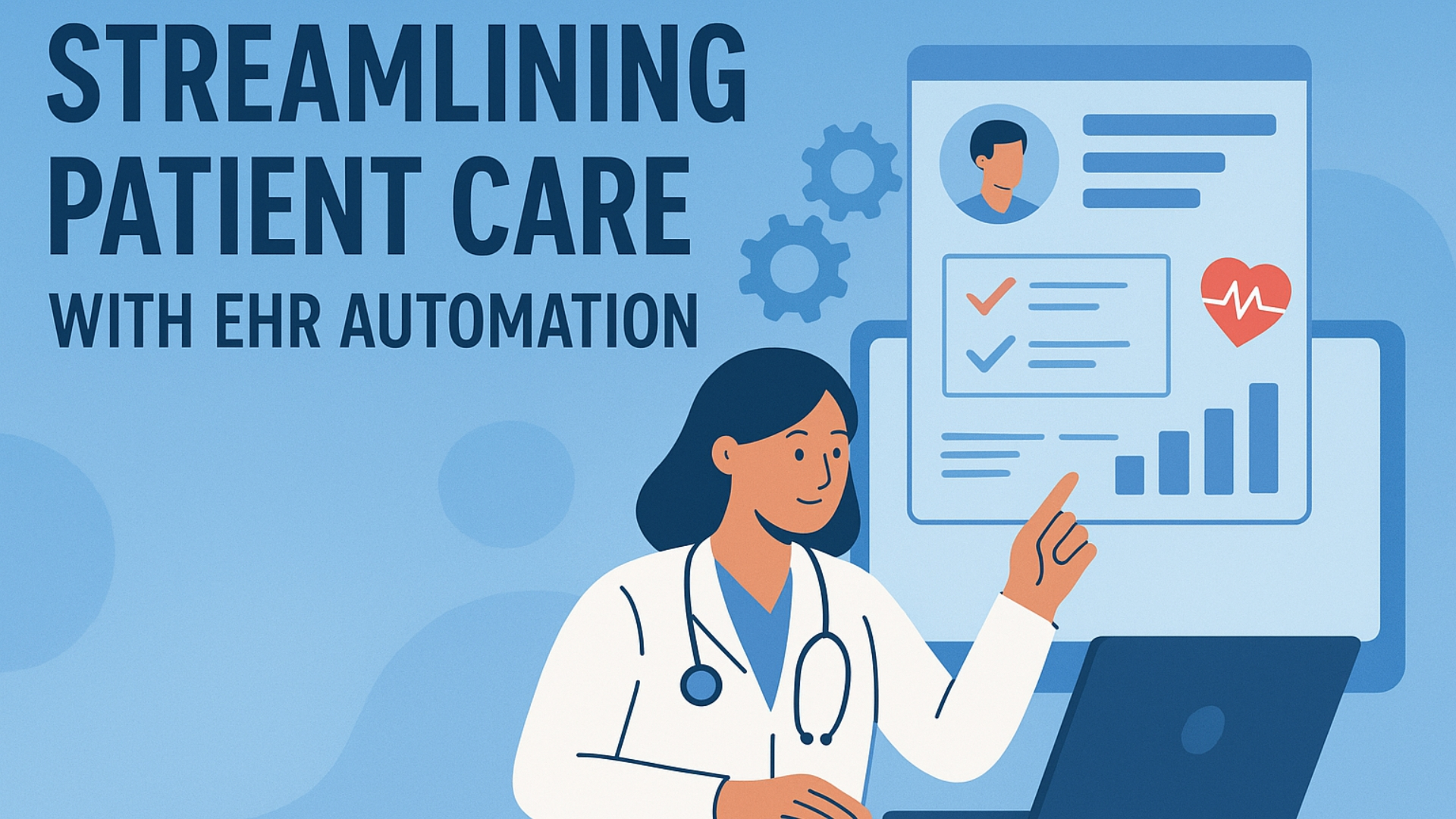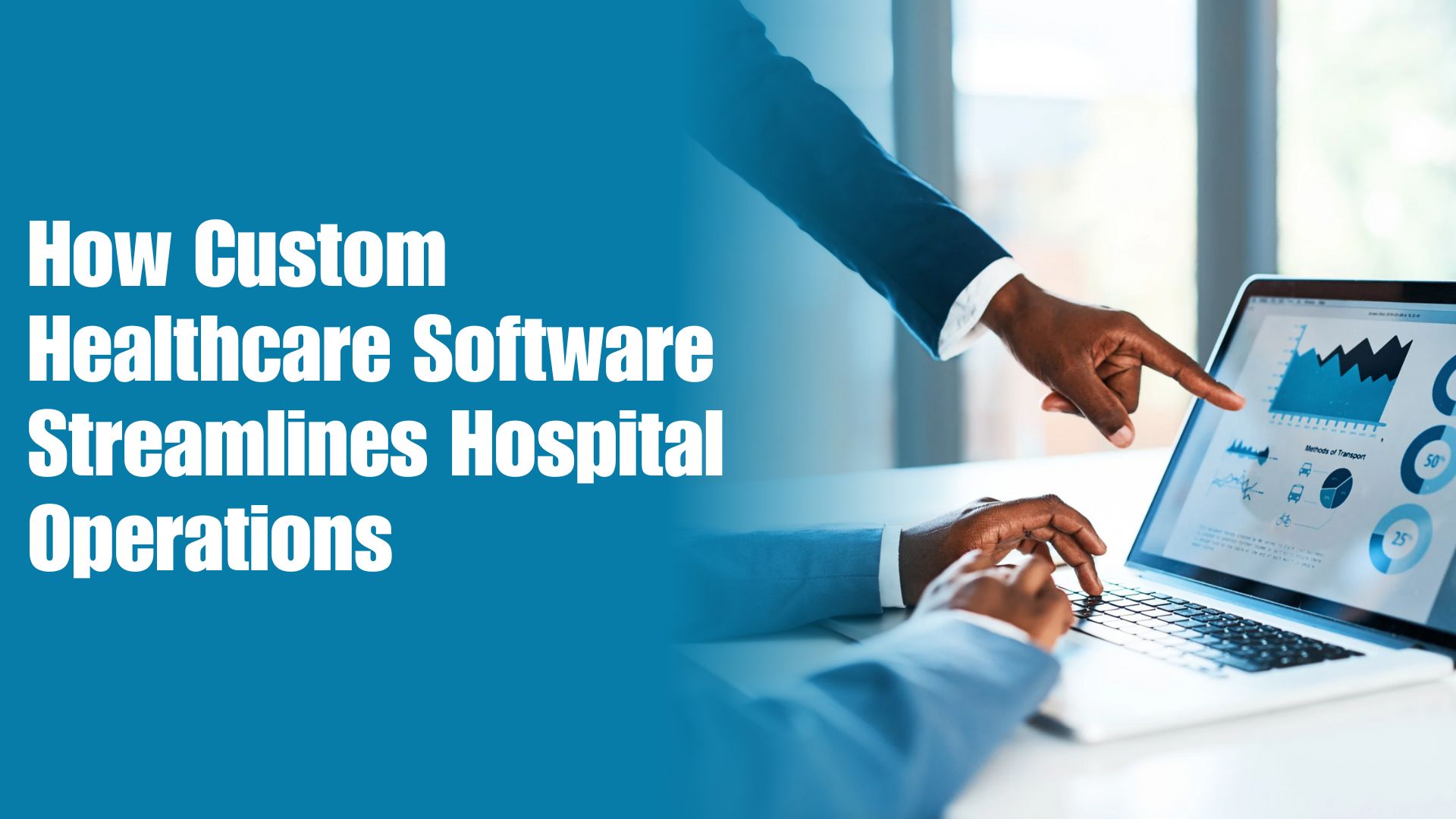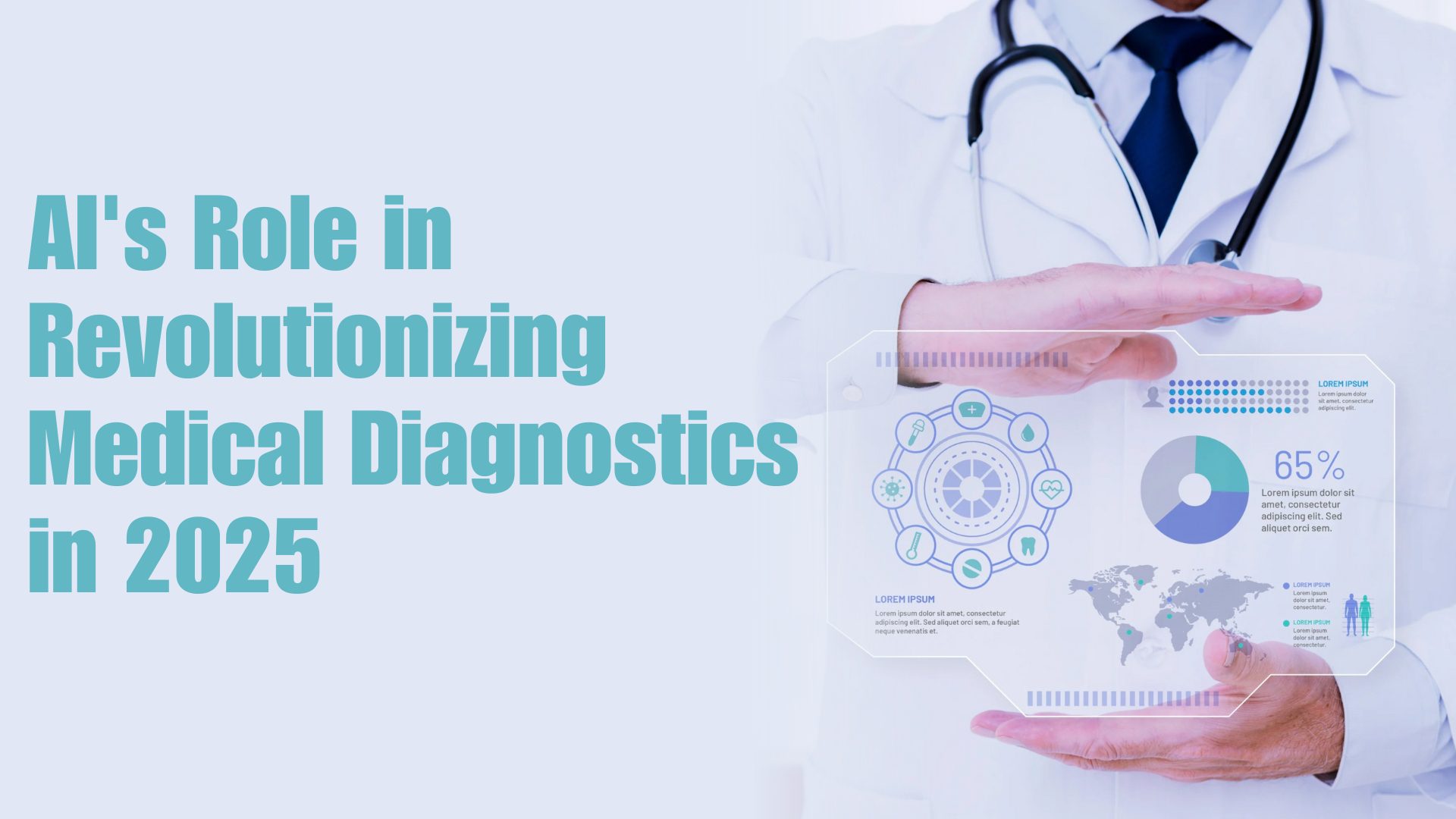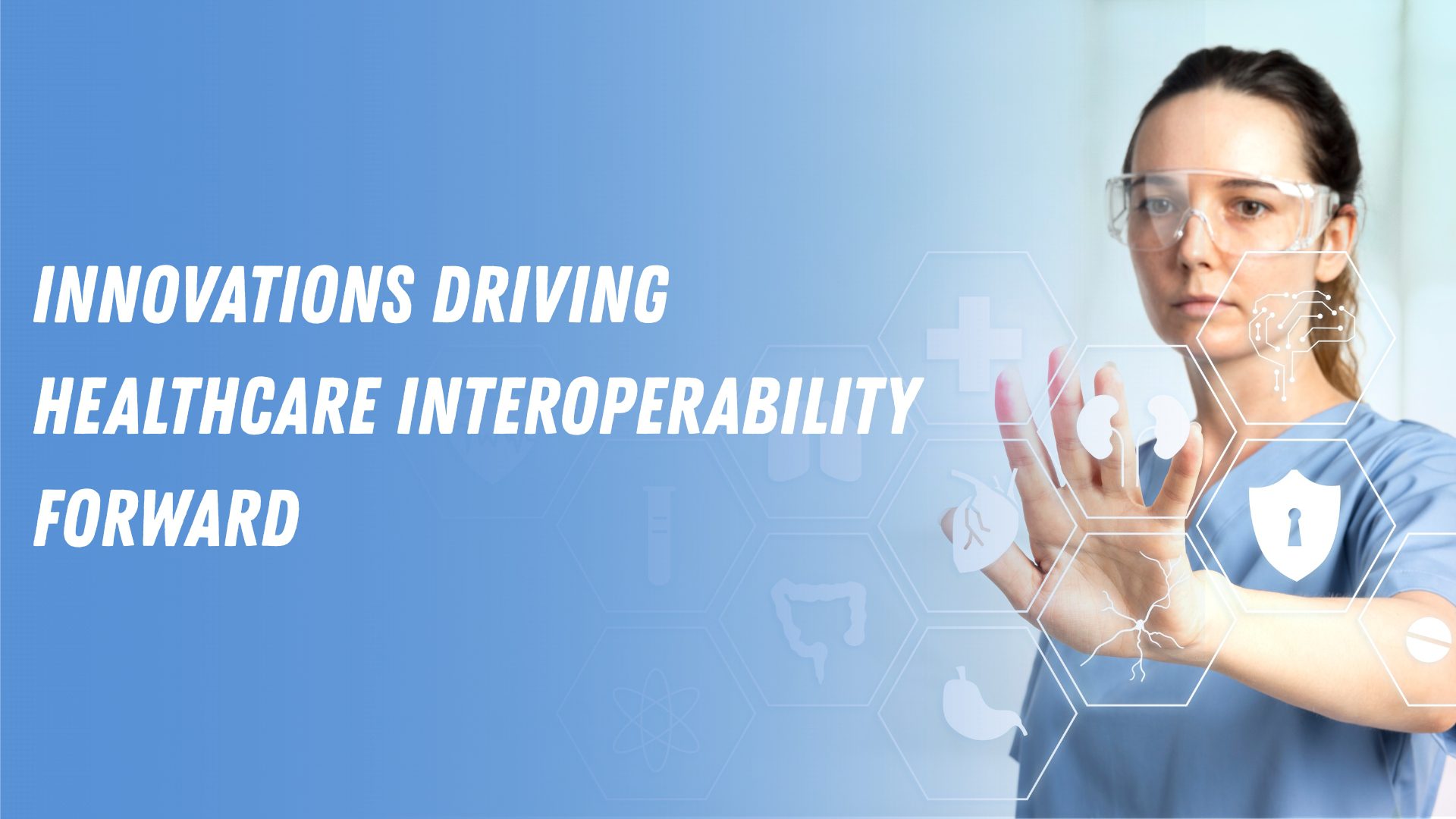Electronic Health Records (EHR) automation is transforming modern healthcare. By reducing administrative burdens, improving record accuracy, and optimizing clinical workflows, it enables healthcare professionals to devote more time to patient interactions. greater healthcare delivery, greater results, and cost savings for companies are the end results.
EHR automation is rapidly gaining adoption among healthcare providers and administrators. With features like real-time access to patient data and seamless integration with other healthcare technologies, it supports data-driven decision-making and personalized care.
As digital health management continues to grow, EHR automation plays a pivotal role in shaping the future of patient care.
What Is EHR Automation and Why Does It Matter?
EHR automation explained:
EHR automation uses technology to manage routine tasks in electronic health records. Instead of relying on manual data entry, it automatically updates and organizes patient records. This guarantees data correctness and reduces human mistake.
By streamlining administrative work, automation frees healthcare professionals to focus on patient interactions, which improves overall healthcare experiences.
Key components of EHR automation include:
- Automated data entry and updates
- Seamless integration with other healthcare systems
- Real-time alerts and notifications
For healthcare facilities, these tools reduce redundancy, optimize resource allocation, and improve service delivery — critical in today’s fast-paced clinical environments.
What Are the Key Benefits of EHR System Automation in Healthcare?
Why do healthcare organizations adopt EHR system automation?
EHR system automation delivers numerous benefits that impact both providers and patients:
- Reduced administrative burden – Less time spent on paperwork means more focus on patient care.
- Enhanced record accuracy – Automation minimizes human error in medical record automation, ensuring complete and precise patient information.
- Clinical workflow optimization – Automated scheduling and streamlined processes reduce delays and improve patient flow.
- Improved patient satisfaction – Faster service and accurate records lead to better patient experiences.
- Cost savings – Automating repetitive tasks lowers operational expenses, supporting sustainable healthcare delivery.
- Regulatory compliance: Automated documentation guarantees that moral and legal requirements are met.
Together, these EHR system benefits reinforce the foundation of quality healthcare services.
How Does EHR Automation Optimize Clinical Workflows?
What is clinical workflow optimization with EHR automation?
EHR automation improves clinical efficiency by reducing time spent on manual tasks. From scheduling to inter-departmental collaboration, it ensures smoother operations across healthcare facilities.
Core areas of optimization include:
- Data entry efficiency – Automation reduces redundant input and updates records in real time.
- Scheduling and task management – Automated systems ensure timely appointments and reduce patient wait times.
- Collaboration across departments – Shared digital access to patient records fosters coordinated care.
- Improved communication and patient flow – Seamless access leads to better coordination among staff.
By adopting tailored healthcare automation tools, organizations can align workflows with both patient needs and operational goals.
Epic EHR Automation: Custom Solutions and Integration Services
How does Epic EHR automation benefit healthcare operations?
Epic EHR automation delivers custom solutions that align directly with organizational goals. Through custom software development for Epic EHR automation, healthcare providers can address unique operational needs.
Integration is a critical factor. With EHR integration services, Epic systems ensure smooth data exchange across platforms. This strengthens collaboration, reduces administrative burden, and enhances patient care delivery.
Epic EHR automation benefits for healthcare include:
- Improved patient data management
- Enhanced coordination among staff
- Streamlined healthcare operations
- Cost and time efficiency
With these advantages, Epic EHR automation transforms healthcare operations into a more efficient, patient-focused system.
Why Is EHR Test Automation Important?
What is EHR test automation?
EHR test automation ensures the reliability and compliance of electronic health records. Automated testing protects accuracy and reliability by spotting possible problems before they affect patient care.
Key advantages of EHR test automation include:
- Increased testing efficiency
- Early detection of compliance issues
- Improved accuracy in patient records
- Enhanced alignment with healthcare regulations
By reducing risk, EHR test automation strengthens trust in healthcare systems and ensures safe, compliant operations.
Overcoming Challenges in EHR Automation Implementation
What are the common challenges in EHR automation?
Implementing EHR automation can be complex due to staff resistance, system integration difficulties, and workflow adjustments.
Strategies to overcome challenges include:
- Comprehensive training programs to ease staff adoption
- Engaging stakeholders early to build support
- Continuous system monitoring for long-term performance
- Flexibility to adapt based on user feedback
With proactive strategies, healthcare organizations can ensure smoother implementation and maximize EHR system benefits.
Future Trends in EHR Automation: AI, Digital Health, and Beyond
What is the future of EHR automation in healthcare?
The future of EHR software solutions lies in advanced AI and digital health management platforms. These innovations will automate more processes, provide deeper patient insights, and integrate with wearable health technologies for real-time monitoring.
Emerging EHR automation trends include:
- AI-driven analytics for personalized care
- Integration with wearable health devices
- Mobile applications for patient engagement
These trends point toward more personalized, data-driven healthcare that enhances both patient outcomes and operational efficiency.
Conclusion: Transforming Patient Care with EHR Automation
EHR automation is now required, not optional. By streamlining clinical workflows, enhancing accuracy, and enabling cost savings, it strengthens healthcare operations.
With tools like Epic EHR automation, EHR test automation, and integrated healthcare automation solutions, providers can improve compliance, efficiency, and patient outcomes. As digital health management continues to evolve, EHR automation will remain at the heart of delivering high-quality, patient-centered care.
FAQ’s
What is the main purpose of EHR automation?
The primary goal is to reduce administrative tasks, improve accuracy in patient records, and allow healthcare professionals to focus more on direct patient care.
How does EHR automation support clinical workflow optimization?
By automating data entry, scheduling, and inter-departmental communication, it streamlines operations and reduces patient wait times.
Why is EHR test automation necessary?
It ensures that EHR systems remain reliable, accurate, and compliant with healthcare regulations by detecting issues before they affect patient care.
What are the benefits of Epic EHR automation in healthcare operations?
Epic EHR automation provides custom software solutions, seamless integration, and improved data management — all leading to cost savings and better patient outcomes.







